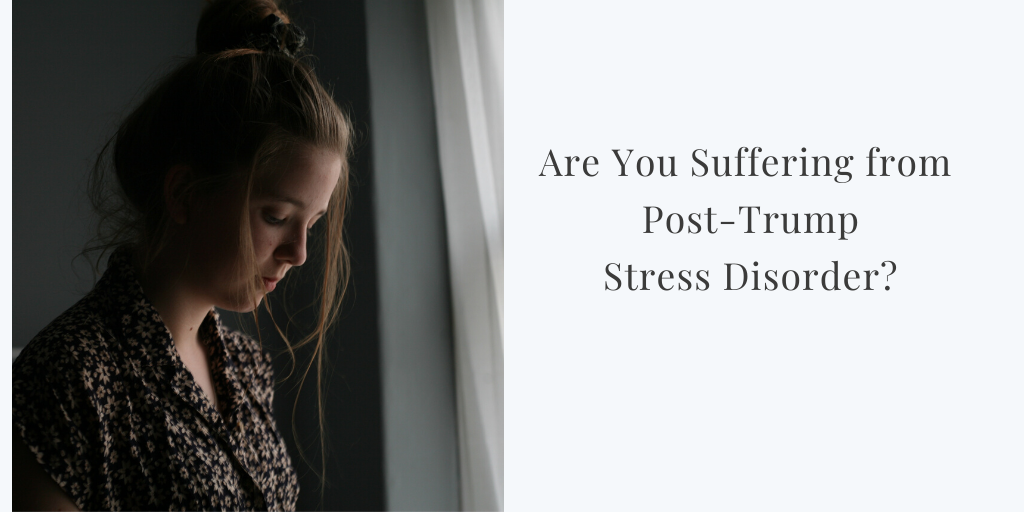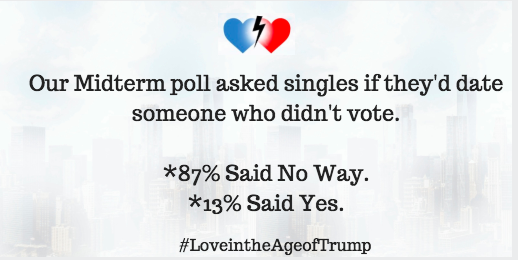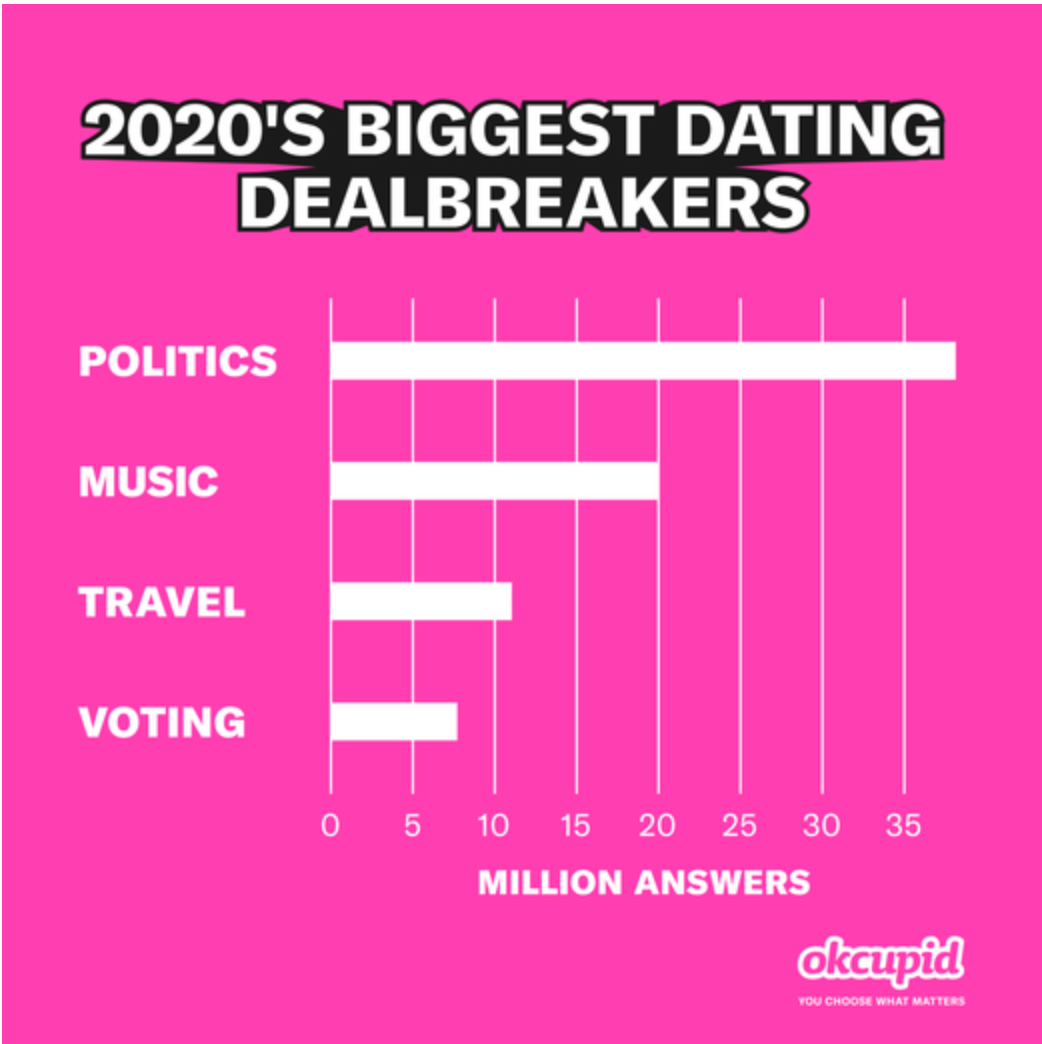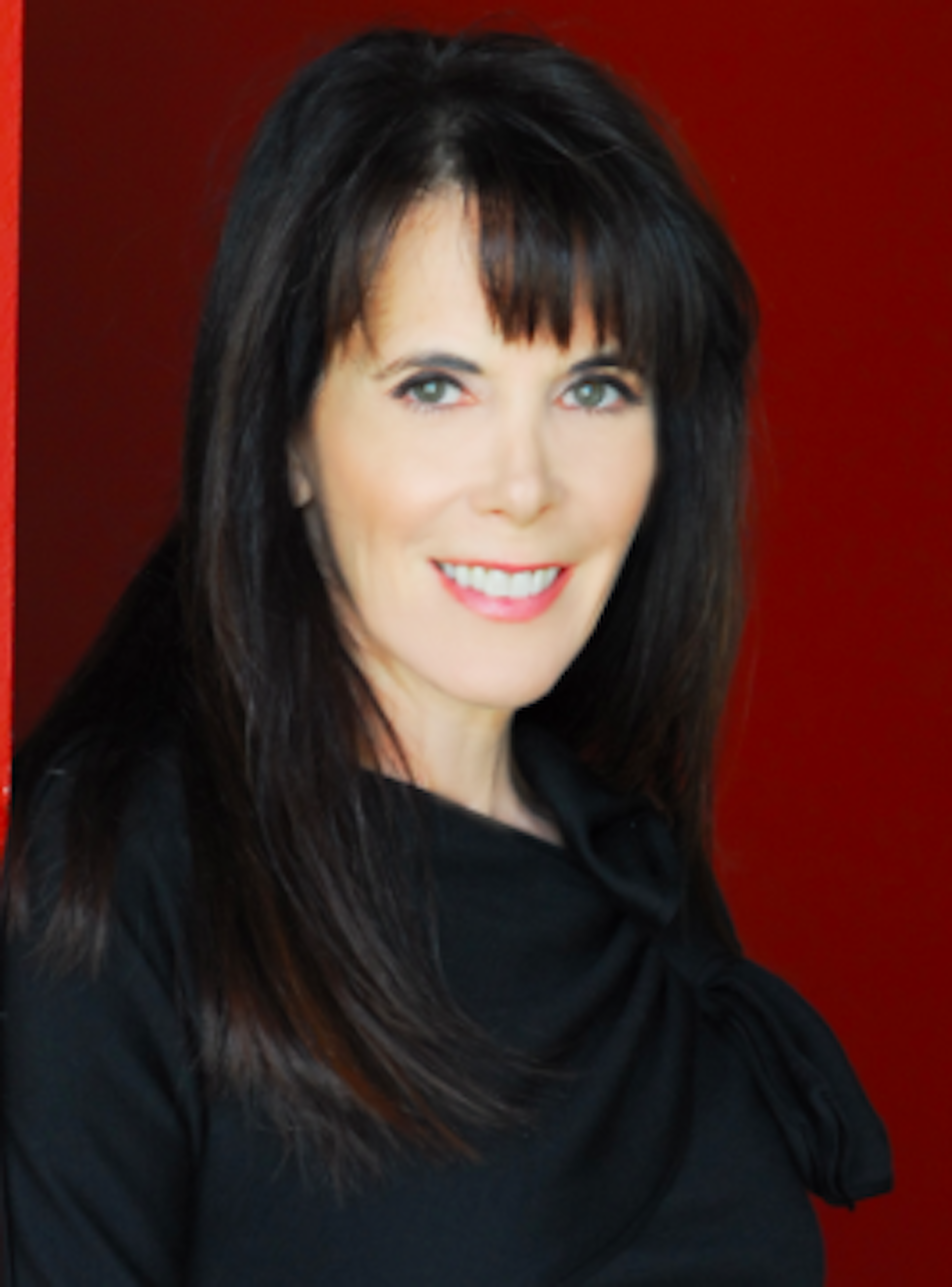
Post-Traumatic Stress Disorder is defined by the Mayo Clinic as “a mental health condition that’s triggered by a terrifying event — either experiencing it or witnessing it.”
Today, the PTSD acronym is taking on a whole new meaning. Americans are feeling anxious about what’s happening in our country, regardless of which way they lean politically, resulting in informally redefining PTSD to include Post-Trump Stress Disorder.
What is Post-Trump Stress Disorder?
While it’s not a medical diagnosis, it’s something many people across the country struggle with daily. I’ve been experiencing this feeling since the 2016 election, with so many critical issues now at stake.
As we watch the current news cycle, it forces all of us to be aware of the presidential candidates, the serious topics of gun control, healthcare, women’s rights, and the need to speak up and vote.
When we dig deeper, we notice we’re in crisis mode on the subject of humanity. Kids are being separated from parents and locked in cages, and climate change isn’t fake news. Just look at Australia, and the sorrow we are feeling watching this friendly country burn before our eyes from afar.
We should be worried about women’s rights to their bodies, and many fear for the future of our country and our families. Greta Thunberg is traveling around the world as a global hero, and the enthusiasm of the Parkland students marching for gun control isn’t something anyone will forget.
Many of us on the sidelines are feeling anxious and depressed, and we don’t know what to do about it, so we blame our political opponents.
PTSD and Women
The American Psychiatric Association reports that women are twice as likely as men to suffer from PTSD and that “PTSD doesn’t just happen to combat veterans, but in all people of any ethnicity, nationality or culture, and any age.”
While the APA reports that PTSD affects approximately 3.5 percent of adults in the United States, they add that one in 11 people will be diagnosed with PTSD.
As it relates to Post-Trump Stress Disorder, I felt a build-up of stress leading into the 2016 election but didn’t believe Donald Trump would be elected president. The following day after he won the Electoral College, I couldn’t get out of bed, and I couldn’t write anything meaningful for weeks.
I didn’t watch the Presidential inauguration for the first time in my adult life, a tradition I embraced whether my candidate won or not.
Politics and Dating Collide
As an online dating expert and dating coach, and one in the business of forging love relationships, I know that politics is now front-and-center. It’s had a dramatic impact on dating, and online dating in particular, and it hit home for me at the core.
When I wrote my essay, Can Love Survive Trump, I felt so anxious, I had it edited 700 times by outsiders and myself before it was published. The piece revealed my personal experience with the demise of my greatest love story ever. I needed to share this experience with others, so they wouldn’t feel alone if their bipartisan relationships started to unravel.
I received an outpouring of support and started interviewing singles and couples around the country who were struggling with politics showing up on dates, entering the bedroom, and partners wearing MAGA hats or tee-shirts saying, “Not My President.”
I didn’t want to see love get kicked to the curb, so I had to find a solution, and my byline expanded to include the title of “Political Dating Expert.”
The data and stories I’ve collected are the basis of a new book, “Love in the Age of Trump: Can Politics Polarize Relationships,” and the answer is a clear yes. How we select dates and partners has changed dramatically since Donald Trump took up residence in the White House.
With Post-Trump Stress Disorder and Post-Trump Anxiety Disorder, the word “traumatic” is replaced with “Trump,” because so many of us have been traumatized by the actions of our impeached president. The slogan of “Make Love, Not War,” is sadly making a comeback, and the dating pool could potentially be cut in half if we don’t get a grip on how to keep the romance alive during this turbulent time.
Dating Deal-Breakers and Politics
My research shows that single women would prefer dating a smoker who could quit than dating a Trump supporter, and it’s now the top deal-breaker in selecting a partner.
I’ve watched friendships severed on social media. Conversations over the holidays required a “no-politics” zone so families could celebrate without the extra tension at the dining room table. It’s now an election year, where dueling networks will report differently on the same news stories, and comments on political rants on Twitter will be on the rise. Is it making you feel anxious? It should.

I conducted a Midterm poll, which showed that 87% of singles wouldn’t date someone who didn’t vote, and the ongoing survey on LoveintheAgeofTrump.com shows 66% of singles won’t date across party lines. These sentiments existed during the terms of previous presidents, but not at this level.
Online Daters Get Vocal
Voting and politics are particularly crucial to daters today. The number of daters on the dating app OkCupid who said they enjoyed discussing politics increased by over 150% in 2019, as compared to 2016.
OkCupid recently launched a new global campaign called, “Ask Yourself,” where they let users weigh in on important issues before meeting in person.
On their app, you can answer up to 4000 thought-provoking questions for others to view on your profile, which allows the algorithm to send you matches with a high percentage of compatibility.
OkCupid revealed what I already knew; politics was the number one deal-breaker for their members when it came to dating.

Most of the other dating apps saw a spike in political mentions on profiles as well.
A Match survey from 2017 showed that over 60% of singles weren’t open to dating across party lines, and over 70% of Tinder users said that dating someone with differing political views was a top deal-breaker.
A study conducted in 2017 by eHarmony showed that politics was on the minds of daters more than ever. Since July 2016, women’s interest in politics has spiked more than 43%.
The Stress of Differing Politics
A Pew Research survey from 2019 showed that 50% said talking about politics with people they disagree with is “stressful and frustrating.”
The Pew study went on to say that Donald Trump is a significant factor in people’s views about the state of the nation’s political discourse.
“A 55% majority says Trump has changed the tone and nature of political debate in this country for the worse; fewer than half as many (24%) say he has changed it for the better, while 20% say he has had little impact.”
Love in the Post-Trump Era
I don’t believe that the new PTSD, Post-Trump Stress Disorder, will evaporate once Donald Trump’s presidency ends.
Trump’s Twitter feed will remain active, and for those of us who are suffering, we’ll never forget the visuals we saw of kids getting shot in schools, anti-semitism in Charlotte, fires leaving people homeless, and the shattered hearts along the way.
Can Democrats and Republicans date and fall in love?
Depending on how strongly you feel about your political party, I believe in bringing up politics on a date, finding out why the person you’re meeting supports a particular candidate or issue, and welcoming a lively debate to show you know what’s happening in the world.
If you feel verbally attacked by your choices from someone who thinks differently, know that you have many other options in finding a compatible romantic partner. Some may agree to disagree, and others will choose to find someone with similar attitudes, values, and political leanings. There’s room for everyone at the table, and your voice needs to be heard.
However, not having an opinion about politics in 2020 isn’t an option. Embrace your point of view, but don’t force it on someone who doesn’t want to listen.
If you’re suffering from the new version of PTSD, know that you’re not alone. I encourage you to register to vote, participate in any way you can, and talk to friends and loved ones who feel the same as you do.
We’ll get through this together, I promise.
Julie Spira is an online dating expert and award-winning dating coach. She’s the author of Love in the Age of Trump: How Politics is Polarizing Relationships.
Follow @JulieSpira on Twitter, Instagram, and Facebook.
Sign up for the Free Weekly Flirt newsletter for dating advice delivered to your inbox.


